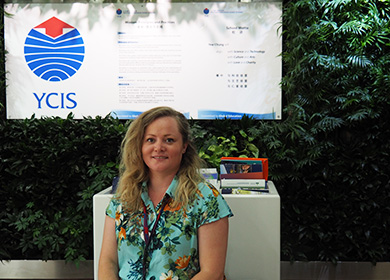Go Back
News
News
Top Strategies to Support English Language Learners
News
16 Aug, 2019
10 : 00
Yew Chung International School of Beijing’s teachers have been working diligently to prepare for the new school year. Supported by the School Leadership Team, teachers have been provided with tools and resources to create a conducive learning environment and help new and returning students from different cultural backgrounds and with different language skills.
For students with no experience with a foreign language, it may take up to 2 years for them to acquire social or communicative language abilities and up to 7 years to hone their academic language competencies. The team of English Language experts at Yew Chung International School of Beijing prioritises the cultivation of language skills for students at beginner, intermediate and advanced levels to ensure a sense of inclusivity and integration while learning.
Language acquisition is a pivotal aspect of learning at YCIS Beijing and with English as the principal medium of instruction at our school, it is essential for learners to be provided with the support that will ensure they flourish not only when learning English, but in all other subjects as well.
Earlier this week, we discussed how YCIS Beijing aids students to become well-integrated language learners with our Head of English and EAL, Rebecca Flavin. Below are some of the strategies the school apply:
1. IntegrationAt the heart of learning a language is integration. That’s why the Co-Teaching Model has been introduced in Lower Secondary to allow for integration or sheltered instruction, where appropriate, in both English and other subject classes for all our language learners. In addition, students are encouraged to socialize by joining one of the many clubs that are available within our close-knit school. Examples are the Debate Club, Co-Curricular Activities such as sport, knitting, robotics, school magazine etc.
2. English Intensive Programme (EIP)We provide an English Intensive Programme (EIP) in Secondary School for students who have almost no experience learning in English. The emphasis of EIP is on vocabulary and grammar for up to three semesters. This main goal of this programme is to ensure that students are in an engaging learning environment where they feel safe to take risks. The ultimate purpose of this program is to move students to a higher level as soon as possible. We have also introduced a programme for our IGCSE cohort who are in the early stages of acquiring academic English. This is a highly rigourous academic programme that develops students' competencies in their academic reading, writing, discussion and research skills that only helps them succeed in their chosen IGSCE courses, but also prepares them for the rigourous nature of the IBDP in Years 12 and 13.
3. Project-based Approach to LearningAt YCIS Beijing, we believe it is important to push students to the best of their abilities, we do so by encouraging students to set goals independently, enquire and choose their own angles on how to present a project. This is particularly ideal for advanced language learners as they can explore more challenging ways of learning.
4. Collaborative Teaching MethodsCollaboratively teaching is primarily targeted at ensuring that content is targeted and responsive to both the students’ needs and abilities. Some of our classrooms consist of a content teacher and specialist support whose role is to modify content and activities to suit the needs of learners.
5. Resources and activitiesOur campus and facilities are conducive for English learning with a newly refurbished library that students can access, as well as educational websites, annual events such as the Battle of the Books, a competition where International Schools’ students around Beijing participate in. This is in addition to classroom activities like discussions, visible thinking activities and the use of technology to promote further learning.
6. Professional teacher developmentTeaching practices are dynamic and we emphasize professional development to keep abreast with new research and trends in the education sector for best practice.
7. EventsEvents such as the annual Poetry Coffeehouse, Speech Competition and Spelling Bee are some of the ways we hone students’ language abilities.
Rebecca Flavin also shared some tips for parents to help them support their children in their language learning at home: - Assist your child with homework.- Develop an interest in their studies.- Maintain contact with teachers.- Encourage your child to read for pleasure.- Use the internet and electronics for entertainment and learning.- Maintain routine and consistency.- Have high, but reasonable expectations












